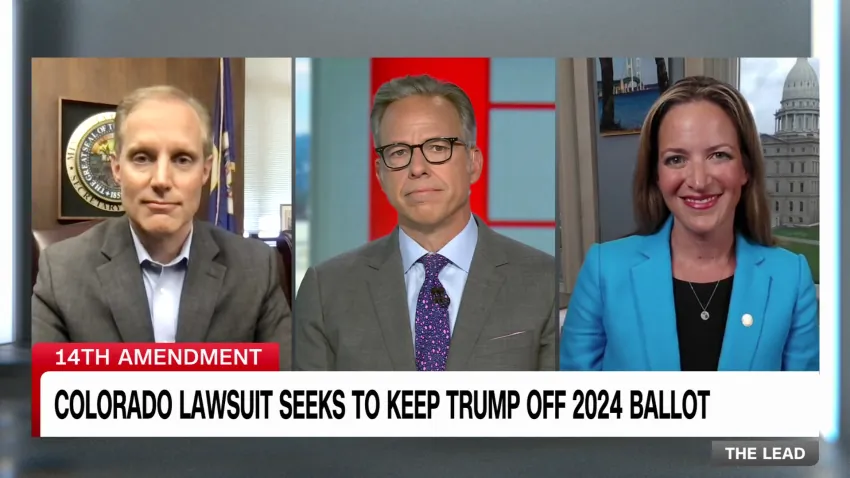The media has been primarily covering two of the four criminal cases against former President Donald Trump, in the past week.
US District Judge Tanya Chutkan recently imposed a limited gag order in the federal 2020 election subversion case. The order restricts former President Trump from publicly attacking potential witnesses, prosecutors, and court personnel. However, the judge temporarily paused the gag order last Friday to allow the defense and prosecution to provide more briefings on the matter after Trump appealed the order.
Later last week, there were significant updates regarding Trump’s criminal case in Fulton County, Georgia. He faces 13 felonies for allegedly attempting to overturn the 2020 election in the state. Two of Trump’s co-defendants, Sidney Powell and Kenneth Chesebro, made plea deals and agreed to testify for the prosecution in future cases, which could include Trump’s. These developments could have a significant impact on the outcome of the case.
Despite facing state and federal charges related to his attempts to overturn the 2020 election, Trump has consistently denied any wrongdoing and pleaded not guilty. According to CNN, he is still maintaining his innocence.
One of the cases that could potentially harm Trump’s run for presidency in 2024 is not related to any criminal charges against him. Instead, it is a lawsuit in Colorado that has recently delivered unfavorable news for Trump. Moreover, the trial for this lawsuit is set to begin later this month. The lawsuit has the potential to pose a significant threat to Trump’s candidacy, and the outcome of the trial could have far-reaching consequences for his political future.
The lawsuit filed by a liberal watchdog group on behalf of six Colorado voters aims to disqualify Trump from holding office. The lawsuit is based on Section 3 of the 14th Amendment, citing Trump’s role in the events leading up to the January 6, 2021, attack on the US Capitol. The case has gained significant attention as it has the potential to bar Trump from running for office in the future.
The objective of the move is to prevent him from being listed on Colorado’s primary ballot for the 2024 elections. This action is based on the amendment’s condition that bars US officials from holding office in the future if they have participated in an insurrection or have provided assistance or support to insurrectionists while taking an oath to uphold the Constitution.
Colorado District Judge Sarah Wallace has denied three arguments made by former President Donald Trump and the Colorado GOP to dismiss a case before its scheduled October 30 trial date. The judge specifically rejected the argument that state officials have no say in who is listed on the ballot if a political party wants to include them. This is a significant point that was made in the case.
According to Wallace’s ruling, the political party cannot simply choose their preferred candidate without any oversight. If they have this power, they could potentially nominate anyone, even if they do not meet the age, citizenship, or residency requirements. This interpretation, as Wallace points out, is absurd. The Constitution lays out clear eligibility requirements, which cannot be left to the discretion of political parties.
To the likely dismay of President Trump, Wallace cited a 2012 opinion from Supreme Court Justice Neil Gorsuch, who was appointed by Trump himself when he served as a federal appellate judge. In the mentioned case, Gorsuch stated that states have the legal right to prevent constitutionally ineligible candidates from appearing on the ballot. CNN reported on this matter in 2023.
According to reports, Wallace’s ruling didn’t explicitly assert that the Fourteenth Amendment could be utilized to remove a presidential candidate from the primary ballot. Additionally, it was not established whether the Secretary of State has the authority to make such a determination. These matters, along with others, are expected to be resolved during the upcoming trial. The ruling can be found at this link.
If successful, the lawsuit at hand could pose a greater threat to Trump’s presidential candidacy than his criminal cases. This is because there is no constitutional provision that prohibits him from running for president, even if he is convicted in one of his criminal cases. In fact, he could even run for president while serving prison time. This sets the lawsuit apart from the criminal cases and makes it a unique challenge for Trump’s candidacy.
In the event that Trump loses the case related to the 14th Amendment, or any similar ones in states like Michigan and Minnesota, his name will not be included on the ballot in those states. This is due to the fact that he would be considered constitutionally ineligible to run for president.
The Colorado lawsuit against Trump is still pending, and the former President is fighting to have it thrown out. He has publicly criticized the judge’s rulings, claiming that she is going against established legal authority. Despite this setback, his campaign remains confident that the rule of law will ultimately prevail, and that the decision will be reversed at either the Colorado Supreme Court or the US Supreme Court. A spokesperson for the campaign has called the attempt to keep the leading candidate off the ballot “wrong and un-American.”
Legal experts who have weighed in on whether or not Donald Trump violated Section 3 of the 14th Amendment have acknowledged that the issue ultimately needs to be decided by the US Supreme Court. This is a crucial matter, and it’s fitting that it be resolved by the highest court in the land. Even if the decision in Colorado doesn’t go in Trump’s favor, it could be the case that makes its way to the Supreme Court.
For those who may think that disqualifying Trump from the ballot is impossible, they may want to take a look at the example set by former New Mexico elected official, Couy Griffin. Griffin, who was once the leader of Cowboys for Trump, was disqualified from the ballot as well.
Griffin faced a lawsuit accusing him of violating Section 3 of the 14th Amendment in connection with the January 6 attack. During the trial, expert testimony was presented, leading the judge to conclude that the event was, as envisioned by the 14th Amendment, an “insurrection.” This amendment was adopted in 1868 following the Civil War, and Section 3 was created to prevent former Confederates from holding office after the war.
Griffin faced legal consequences in 2022 when he was convicted of misdemeanor trespassing on US Capitol grounds. However, he was acquitted of a second misdemeanor charge of disorderly and disruptive conduct. As reported by CNN, the verdict was delivered in March of 2022.
According to reports, Couy Griffin, a county official, was found to have participated in the insurrection at the Capitol grounds. The judge ruled that Griffin’s presence at the site was enough to constitute his engagement in the insurrection. The judge further explained that engagement in insurrection does not necessarily require an individual to commit violent acts. Non-violent actions or words in support of the insurrection can also qualify as engagement.
As a result of his involvement and support of the Capitol riot, Griffin was stripped of his position as a commissioner in Otero County and is now prohibited from running for office in New Mexico. The state’s Supreme Court ultimately refused to overturn the decision, making him the first elected official to be removed from office as a result of their participation or support of the Capitol riot. This ruling was made in September 2022, and Griffin’s final appeal was rejected earlier this year.
If you believe that it goes against democracy to prohibit officials from running for office if they have violated the 14th Amendment, I have two points to make. Firstly, it is much more undemocratic to take part in an insurrection that aims to prevent the peaceful transfer of power. Secondly, we cannot disregard the requirements for candidates that are explicitly stated in the United States Constitution, if we want to uphold our status as a democratic republic.



